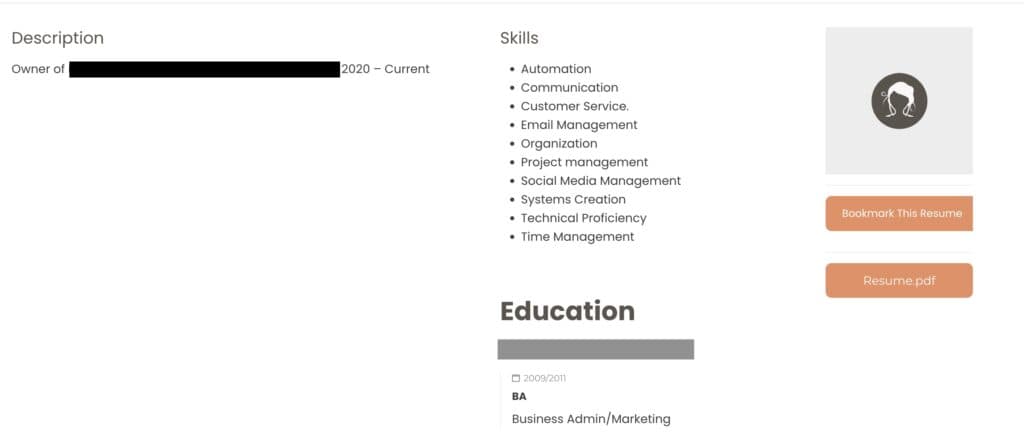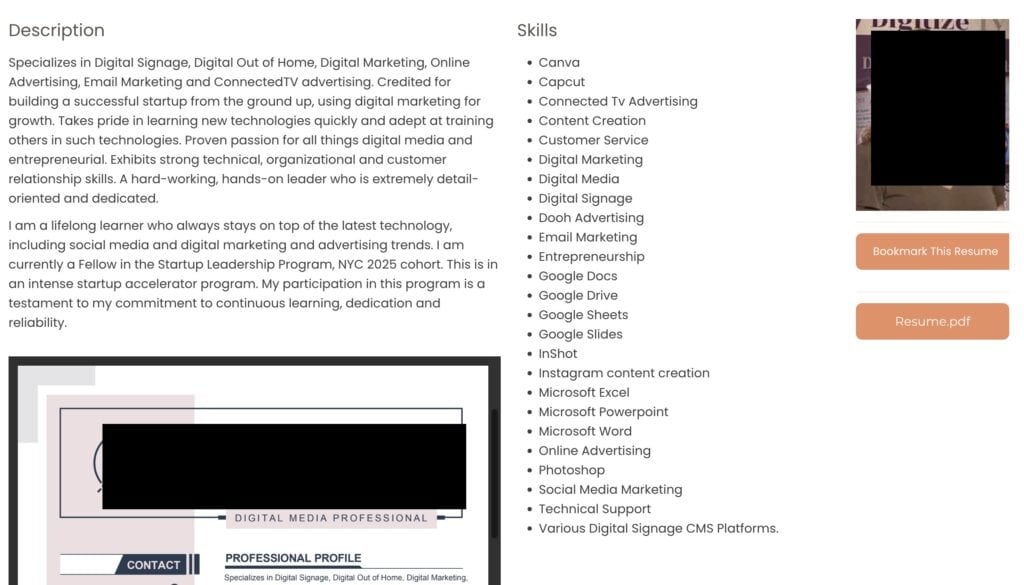How to Create a Winning Job Post
Any successful hiring manager will tell you that having a great job description (or job post) is vital to hiring great candidates. Without it, you may not attract any candidates or you may attract the wrong ones — and that’s not a good use of your time or money. We want to share with you how to create a job post that will attract the right candidates and increase your chances of finding the rockstar team member you need for your business.
Examples of What Not to Do
The number one thing we see is that some employers do not include enough information on their job posts. With the first example below, you will notice that minimal information was provided about the company and the position itself. We recommend including information such as the duties of the job, specific experience needed, any special skills you are seeking, the number of hours per week or month you are seeking as well as any other pertinent qualities, qualifications or skills needed. It can also be helpful to include a bit about the company and the culture that gives the candidates an idea of what it’s like working for your company. This helps ensure they feel like they would be a good fit for what you are looking for.
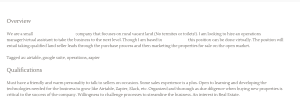
Our next example is getting more on the right track, but we recommend adding more details without writing a book. This post does a much better job explaining the position and offering some information about the company. However, the time commitment is still missing as is more specific information about what is needed for the job itself.
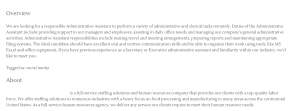
Examples of What to Do
We’ve compiled two of some of the top performing job posts on the site to share with you below. You will notice that the first post has quite a bit more information than our previous examples. It goes into detail about the company, what the position is about, what is needed for the position, and the commitment requirements.
You may not have this many requirements or qualifications needed and that is 100% ok. Your job does not have to be long to be thorough. In fact, super long job posts don’t perform well because it overwhelms the candidates so it’s important to state what you are looking for, the important points but not go overboard and write so much that you scare off potential candidates. This example below is one of our longer job descriptions but we are suggesting that you should have one this long.
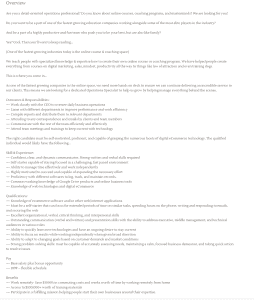
Our next example is very similar with lots of great details. As a bonus, this post states up front what the salary range is which can help find better job candidates that know what to expect from the beginning with regards to compensation. Again, your job description does not have to be this long. We just wanted to give you some ideas of things you can include to help your job post perform better!
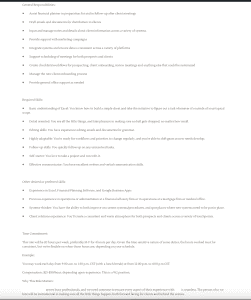
In need of more inspiration or ideas to kickstart your job description?
We’ve put together a FREE Job Post template for our audience to help make this process easier! CLICK HERE to download it.
Do you tips that have worked well for you in hiring or writing job descriptions? Share with us your tips to help other employers create the best job post possible.


